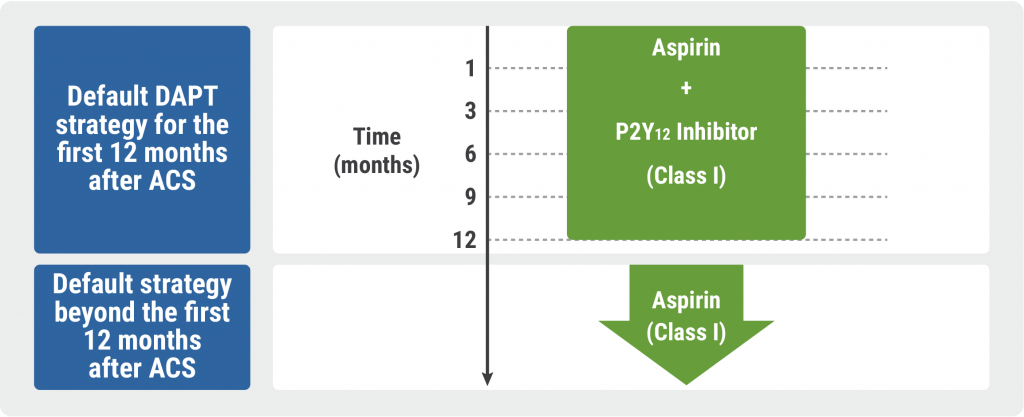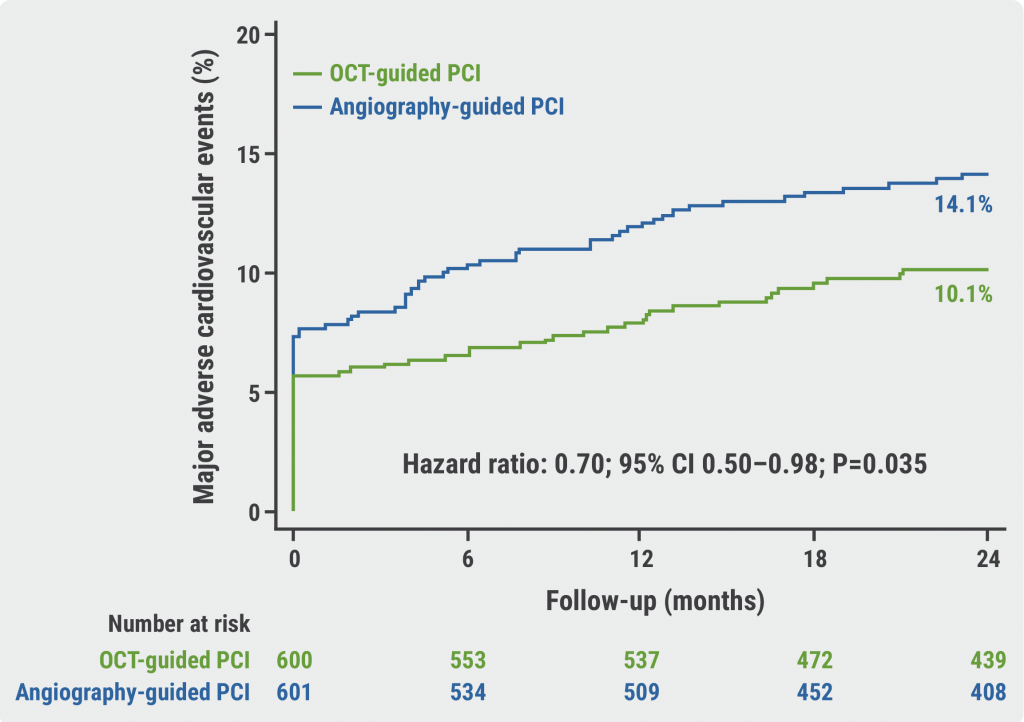https://doi.org/10.55788/ade265fb
“Although the use of ECLS has been increasing in the context of treating infarct-related cardiogenic shock, there is insufficient evidence for its effect on mortality,” explained Prof. Holger Thiele (University of Leipzig, Germany) [1]. To evaluate ECLS in this setting, the ECLS-SHOCK trial (NCT03637205) randomised 420 patients with acute MI complicated by cardiogenic shock 1:1 to ECLS plus standard medical therapy or standard medical therapy only [2]. The primary endpoint was 30-day all-cause mortality.
No significant difference was observed in all-cause mortality between the ECLS arm and the control arm (47.8% vs 49.0%; RR 0.98; 95% CI 0.80–1.19; P=0.81). Prof. Thiele added that secondary outcomes such as arterial lactate, renal function, and simplified acute physiology score (SAPS II) confirmed that there was no difference between both treatment groups. However, there was an increased risk for moderate-to-severe bleeding in participants receiving ECLS compared with those in the control arm (23.4% vs 9.6%; RR 2.44; 95% CI 1.50–3.95; P<0.05). Similarly, the ECLS arm showed higher rates of peripheral ischaemic vascular complications requiring surgical or interventional therapy (11.0% vs 3.8%; RR 2.86; 95% CI 1.31-6.25; P<0.05).
The authors also performed a meta-analysis of the 4 trials investigating ECLS in this setting (i.e. ECLS-SHOCK 1, ECMO-CS, EURO SHOCK, and ECLS-SHOCK) and found no effect on all-cause mortality by omitting this therapy (OR 0.93; 95% CI 0.66–1.29) [3].
In conclusion, both the current ECLS-SHOCK trial and a meta-analysis including 4 randomised-controlled trials comparing ECLS to control failed to show that an ECLS strategy reduces all-cause mortality or other endpoints in patients with acute MI and cardiogenic shock. However, there was an increased bleeding rate in patients who were treated with ECLS. These findings question current guideline recommendations and the increasing use of mechanical circulatory support in patients with cardiogenic shock in clinical practice. These results question the recommendations of the current guidelines and suggest that ECLS should be used with restraint in patients after MI and complicating cardiogenic shock.
- Thiele H, et al. Extracorporeal life support for acute myocardial infarction complicated by cardiogenic shock: ECLS-SHOCK. Hot Line Session 3, ESC Congress 2023, 25–28 August, Amsterdam, the Netherlands.
- Thiele H, et al. N Engl J Med. 2023; Aug 26. DOI: 10.1056/NEJMoa2307227.
- Zeymer U, et al. Lancet. 2023; Aug 26. DOI: 10.1016/S0140-6736(23)01607-0.
Copyright ©2023 Medicom Medical Publishers
Posted on
Previous Article
« HEART-FID: Is intravenous ferric carboxymaltose helpful in HFrEF with iron deficiency? Next Article
Meta-analysis: Does FCM improve clinical outcomes in HF? »
« HEART-FID: Is intravenous ferric carboxymaltose helpful in HFrEF with iron deficiency? Next Article
Meta-analysis: Does FCM improve clinical outcomes in HF? »
Table of Contents: ESC 2023
Featured articles
How to manage arterial thrombosis and thromboembolism in COVID-19?
2023 ESC Guidelines & Updates
Heart failure: the 2023 update
Guidelines for Acute Coronary Syndrome
Guidelines for the management of cardiomyopathies
Cardiovascular disease and diabetes: new guidelines
Guidelines for the management of endocarditis
Trial Updates in Heart Failure
Traditional Chinese medicine successful in HFrEF
CRT upgrade benefits patients with HFrEF and an ICD
Catheter ablation saves lives in end-stage HF with AF
Meta-analysis: Does FCM improve clinical outcomes in HF?
HEART-FID: Is intravenous ferric carboxymaltose helpful in HFrEF with iron deficiency?
Natriuresis-guided diuretic therapy to facilitate decongestion in acute HF
DICTATE-AHF: Early dapagliflozin to manage acute HF
STEP-HFpEF: Semaglutide safe and efficacious in HFpEF plus obesity
Key Research on Prevention
Does colchicine prevent perioperative AF and MINS?
Diagnostic tool doubles cardiovascular diagnoses in patients with COPD or diabetes
Inorganic nitrate strongly reduces CIN in high-risk patients undergoing angiography
Finetuning Antiplatelet and Anticoagulation Therapy
Should we use anticoagulation in AHRE to prevent stroke?
Results of FRAIL-AF trial suggest increased bleeding risk with DOACs
The optimal duration of anticoagulation therapy in cancer patients with DVT
DAPT or clopidogrel monotherapy after stenting in high-risk East-Asian patients?
Assets for ACS and PCI Optimisation
Immediate or staged revascularisation in STEMI plus multivessel disease?
Lp(a) and cardiovascular events: which test is the best?
No benefit of extracorporeal life support in MI plus cardiogenic shock
Functional revascularisation outperforms culprit-only strategy in older MI patients
Can aspirin be omitted after PCI in patients with high bleeding risk?
Angiography vs OCT vs IVUS guidance for PCI: a network meta-analysis
OCTOBER trial: OCT-guided PCI improves clinical outcomes in bifurcation lesions
Other
Minimising atrial pacing does not reduce the risk for AF in sinus node disease
ARAMIS: Can anakinra alleviate acute myocarditis?
Expedited transfer to a specialised centre does not improve cardiac arrest outcomes
Acoramidis improves survival and functional status in ATTR-CM
Related Articles

October 30, 2023
Guidelines for the management of cardiomyopathies

October 30, 2023
Guidelines for Acute Coronary Syndrome

© 2024 Medicom Medical Publishers. All rights reserved. Terms and Conditions | Privacy Policy
HEAD OFFICE
Laarderhoogtweg 25
1101 EB Amsterdam
The Netherlands
T: +31 85 4012 560
E: publishers@medicom-publishers.com

